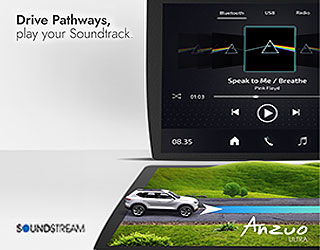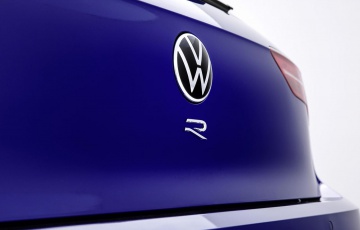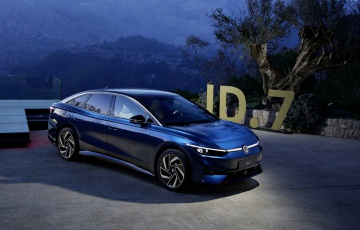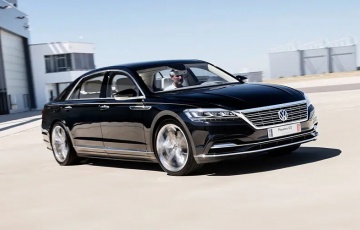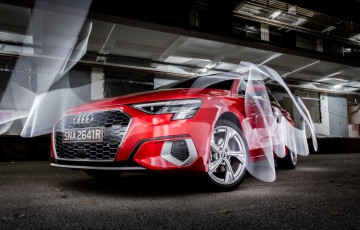Interview: VW Singapore's James Page says You Can Do Better
Ben Chia talks to James Page, Volkswagen Singapore's General Manager for Marketing, who tells us more about their 'You Can Do Better' campaign
Volkswagen Singapore recently revealed their 'You Can Do Better' campaign, which aims to have motorists and car buyers in Singapore ask the right questions when it comes to shopping for cars, especially when it comes to safety and technology. TopGear Singapore speaks to VW Singapore's General Manager for Marketing, James Page, to find out more.
1) What prompted Volkswagen Singapore to embark on this campaign, and what is the idea behind it?
Actually, it's something which we've been thinking about for a long time, and not something that came to us overnight. We've been in the market for quite a while, since 2007, and we found that given the way that technology has advanced over a very fast period of time, a lot of consumers and car buyers were unaware that a lot of cars in Singapore weren't using technologies such as ESP and driver assistance programs. More specifically, when it comes to safety innovations, we found that a lot of cars in Singapore only had two airbags, whereas you can have up to nine airbags in a Volkswagen Golf, for example. So we wanted them to ask the right questions: does my car have enough airbags to cover the safety of my entire family? Does it have the innovations that will keep it straight on the road during a very heavy thunderstorm? That is why we started this campaign.
2) Is there a perception among the general public that having more safety features in a car results in a higher overall purchase price?
That's an interesting question. It's not about the price. It's about having the proper technologies to keep you safe on the road, such as airbags. Can you put a price tag on safety? No you can't. When you talk about the quality of our TSI engines or DSG gearboxes, you talk about the total cost of ownership, which will lower the lifetime cost of owning the car. So in terms of the price tag of a German car for example, that's not what we will take into account. We're taking into account that these technologies are very, very critical.
3) Have there been any difficulties so far in spreading your message to customers and the general public at large?
It's not so much the difficulty that we were facing, but the way we want to open it up in a very unique way. Because we see that not only in our industry, but many other industries will talk about innovations and technologies in a pretty standardised way.
But we wanted to reach out to our consumers in a very special way that will make them remember the importance of what we're talking about. We're not talking about something that is simple and unimportant. You look at the mobile phone for example. Phone technology five years ago, ten years ago, they were like brick technology.
Now you look at touch screen phones, they've changed so rapidly. The same thing has happened with the automotive industry, especially when it comes to driver assistance programs.
The reason we've done (the campaign) in this way, unbranded in the beginning and then unveiling it, is to really make it the talk of the town, so that we can bring it to the consumer and make it live.
4) Do you think that 'over-engineering' a car with safety features might lead to complacency in driving standards and skills?
I think that's also a very valid question. But I think in today's society, everyone's very busy. For example, when I go home from work at 6pm I'm pretty exhausted sometimes. So this only enhances the safety, and ability of the driver to remain straight on the road in a thunderstorm when you're using ESP. So no, I do not think that over-emphasising on safety leads to complacency. It's very important, especially with more cars on the road now, that you have features such as, for instance, blind spot detection, a technology which didn't exist just a few years ago. So when you're tired, you still have increased safety awareness, so I definitely disagree.
5) On a related note, do you think that the newer and younger drivers of today take more risks on the roads, given their knowledge of the advanced safety systems that are fitted to today's modern cars?
What we do here at Volkswagen is that, yes, while these new features are extremely important, and they do enhance the safety of all new drivers, young or old, we also offer assistance programs through what we call My Volkswagen. So all new owners of our cars will have the opportunity to come in and learn first-hand not only how to use these features, but when to use them, so they don't use them at the wrong time, such as when they should be concentrating on the road. We offer these programs to our customers about once every month. In addition, we also have our Eco Driving programs, and drivers can learn how to keep up and capitalise on our technologies so they can bring down the cost of ownership.
6) How important is safety as a value to the Volkswagen brand?
Safety is paramount to us. When you see and touch a Volkswagen, you'll feel that it's different. It's a Continental car, the doors are heavier. Everything, even the design lines on the car, they have a purpose. They enhance safety during a side impact, for example. You can look at the display at our showroom, where we have a Jetta with all the airbags deployed, so you can see exactly where each kind of airbag is situated, and how your family members are protected. So with this campaign, we want to emphasise this matter of safety, and I would say a major reason as to why we started this campaign is to highlight the importance of safety when driving, not only in cities but on open roads as well.
For more information, you can visit the campaign's website at youcandobetter.sg.
PHOTOS: AARON HIA
